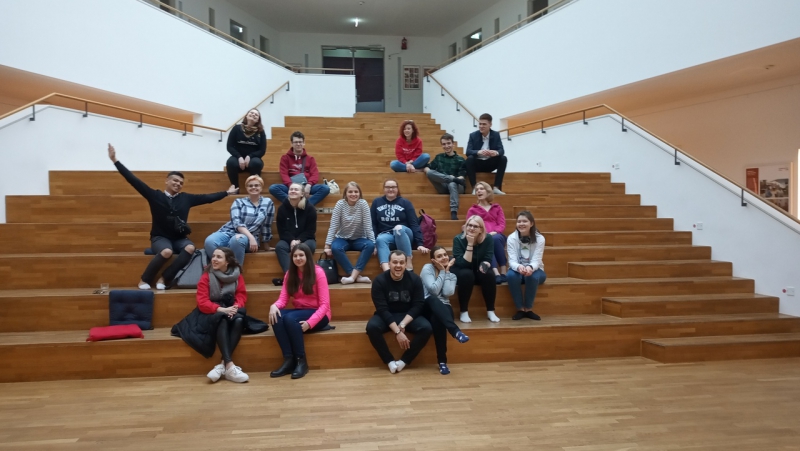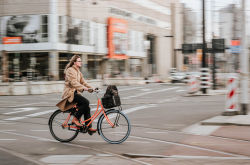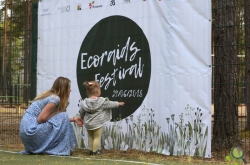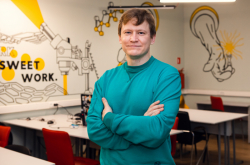The new program that was launched last year and is now available for ITMO students was called “The other side of culture”. It is the result of a collaboration between ITMO’s sports and recreation center Yagodnoye and the German center Jugendbegegnugstätte am Tower Heiner Janik Haus (“Meeting Point by the Tower”).
According to its organizers, the program’s key goal is to expand the participants’ horizons, to acquire new knowledge and meet new people. “The other side of culture” offers its students an opportunity to look at the world from a different standpoint, attain a better level of understanding and open-mindedness, foster their interest in other cultures and develop their communication skills.
“We were really interested in seeing how young people live and study in Germany,” shares Ekaterina Tkacheva, second year Master’s student at ITMO’s Faculty of Secure Information Technologies. “How they obtain their higher education, which centers they attend in order to get additional knowledge and skills, how the educational system is organized, how students from different cities collaborate. We got the chance to learn all of that from the students themselves, when we lived at the youth center and traveled around Bavaria together.”
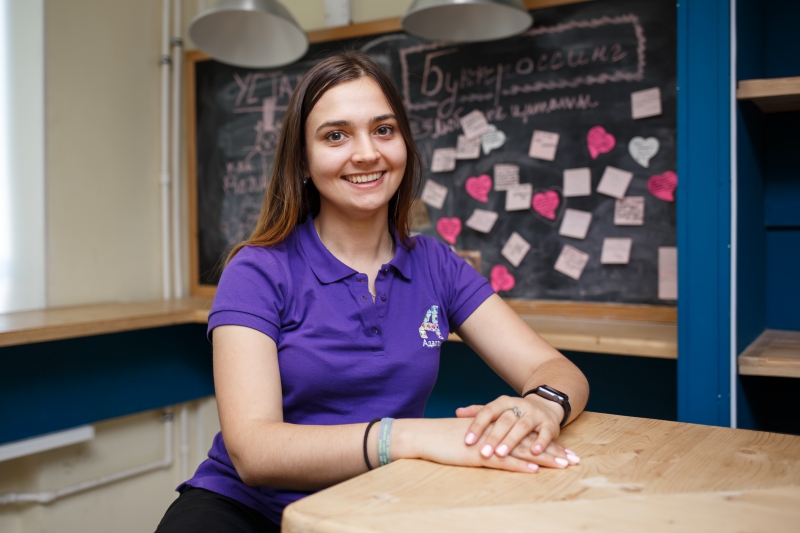
Differences in the educational systems
The program was designed to last ten days (from April 15 to 24) and involved visiting three German towns: Munich, Landshut and Regensburg, which are different in size. In each of them, a group of 16 Russian and 20 German students visited universities and student facilities. According to Yulia Usikova, vice director of ITMO’s sports and recreation center Yagodnoye, it was very interesting to see how German campuses are organized, especially in the light of the construction of ITMO’s new campus Highpark.
Modern German universities are characterized by vast open spaces, functional furniture, the use of wood for decoration, and big libraries. What’s more, the libraries are used for not just storing books but also as study spaces where the students can get together and discuss their projects. The students’ visit to the library of Landshut University coincided with the Easter holidays, and it was filled with students who were working on their assignments. Another trait of German campuses is the abundance of green areas: it is very easy to leave the building, sit on a lawn and continue your studies in the open.
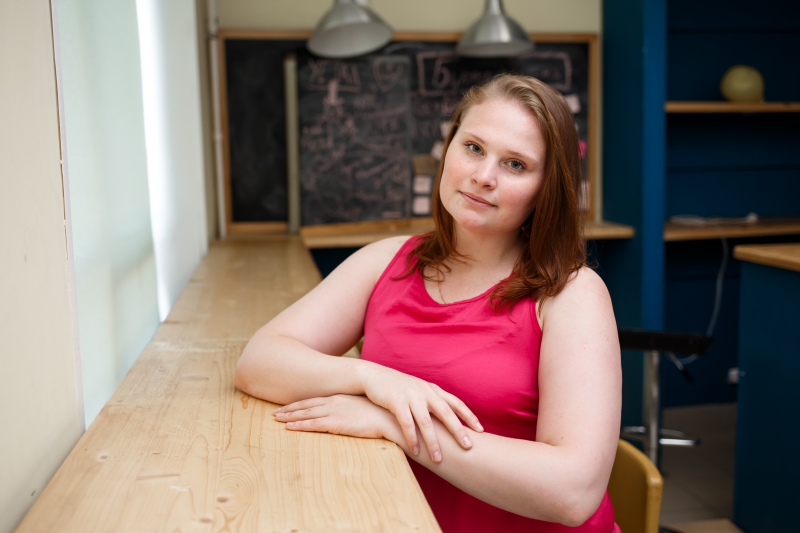
“On the whole, higher education in Germany is more practice-oriented,” comments Yulia Usikova. While we have lots of different subjects that hit the high spots, they train narrow-focus specialists who are highly proficient in their fields. Another thing that impressed us is their ties with the industry. At the Landshut University, we visited a laboratory whose staff collaborate directly with BMW. They have lots of expensive equipment everywhere, which the students use to conduct experiments. As the German said themselves, they have two obsessions: expensive cars (they have them everywhere, even in small towns) and traveling. They circle the globe a lot.”
Cultural similarities and differences
The trip’s program had a cultural part, as well. The group of Russian and German students visited the Regensburg Cathedral, the Schleissheim Palace, as well as many other museums and galleries dedicated to contemporary art, aviation and Germany’s history. What’s more, they also visited a natural reserve on the border between Bavaria and the Czech Republic. There, the Russian students noted the presence of well-lit asphalt paths in the thick of the forest which made the stroll very different from hiking in the Leningrad Oblast.
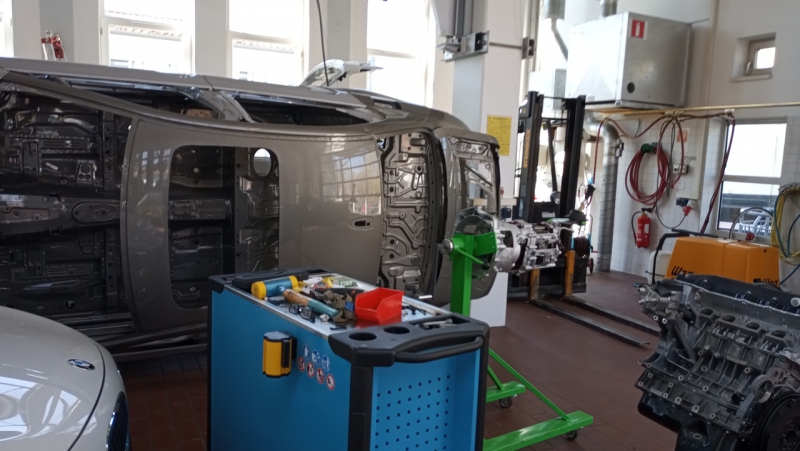
Another thing that they learned is that Germans aren’t used to moving around a lot and covering long distances: they call a trip that takes two hours a “long trip”. According to the program’s participants, one doesn’t need to drive far to work in Germany, as it is easy to find accomodation close to one’s workplace. As opposed to Russia, the young people in Germany don’t aim to leave their homes for big cities. Many of them return once they finish their education, all thanks to the well-developed infrastructure and the abundance of job offers.
The program’s participants say that there were three things that helped the representatives of two different cultures understand each other: food, humor and the desire to learn about another culture. They spent a lot of time communicating and discussing various topics associated with life and education.
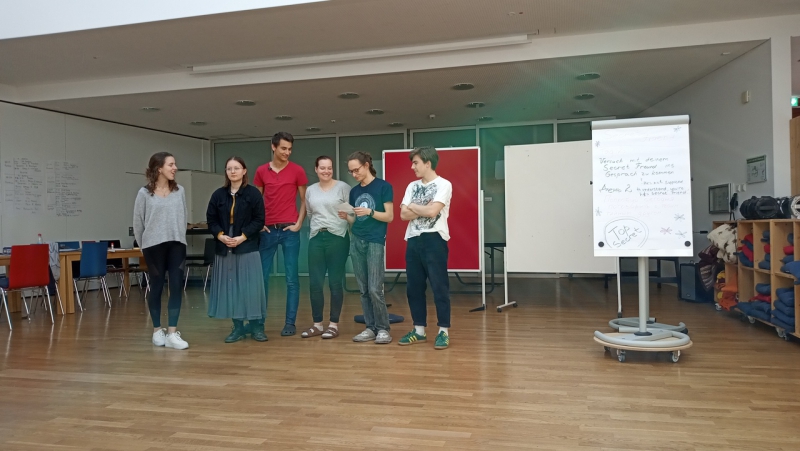
“At first, both they and we were quite uptight, but after the fifth day that we spent together, we started to freely discuss many different topics: army, economics, cars, games, football. We understood that they were as interested in learning about a different culture as we were. So it was an exchange of emotions, knowledge and ideas,” remembers Ekaterina Tkacheva.
The exchange students were also impressed with the development of club culture at German universities. For example, they have social theater clubs that give performances to children and give the money they earn to charitable foundations. In Russia, most clubs operate at their universities only and seldom make it to a citywide level, so there’s much space for growth.
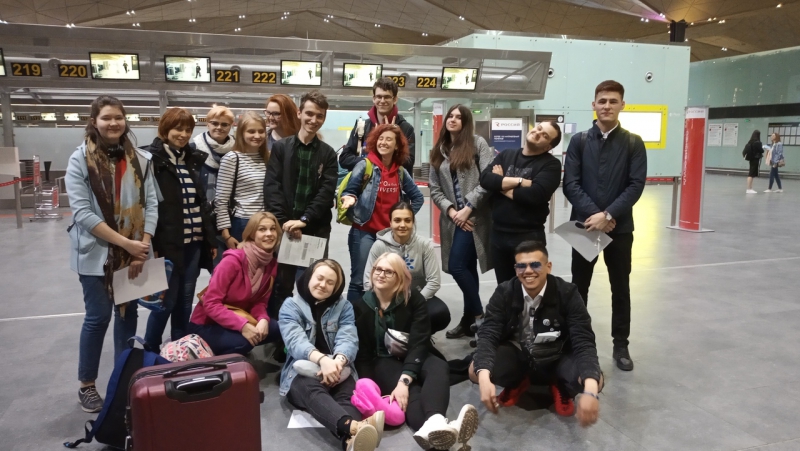
Future of the program
“The other side of culture” exchange program doesn’t end with the students’ return to Russia: in August, they’ll be welcoming the German students and showing them around St. Petersburg. The plan involves going to the city’s museums, as well as Peterhof and ITMO University, where the program’s guests will visit the university’s best laboratories. Another part of the program will take place at ITMO’s sports and recreation center Yagodnoye during an international arts festival that will take place in August.
The organizers hope to continue developing the program. Among their plans are collaborations with youth centers in Poland, but there’s yet to be any specific information in this regard. You can follow the news and updates on the program in Yagodnoe’s official community on VK (in Russian).
